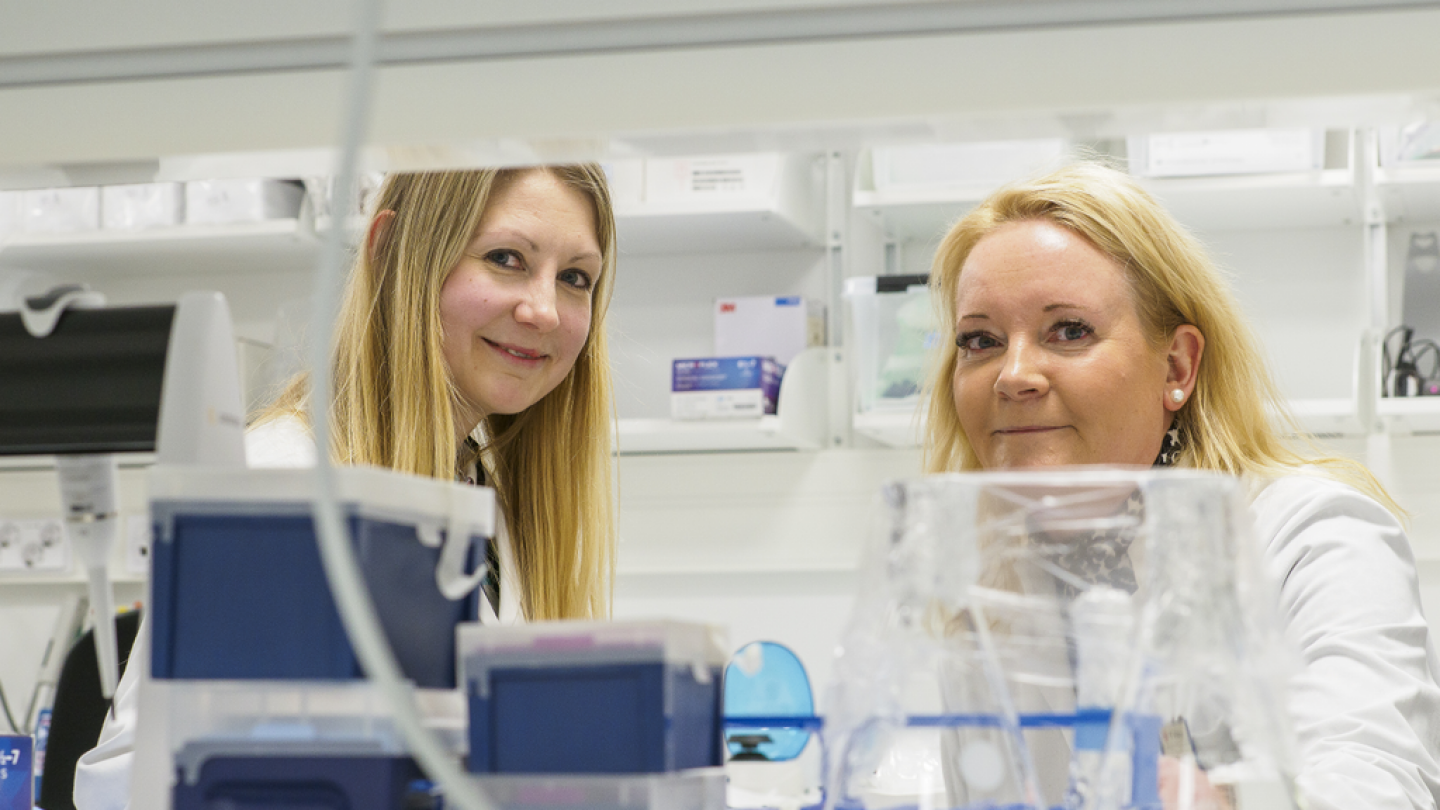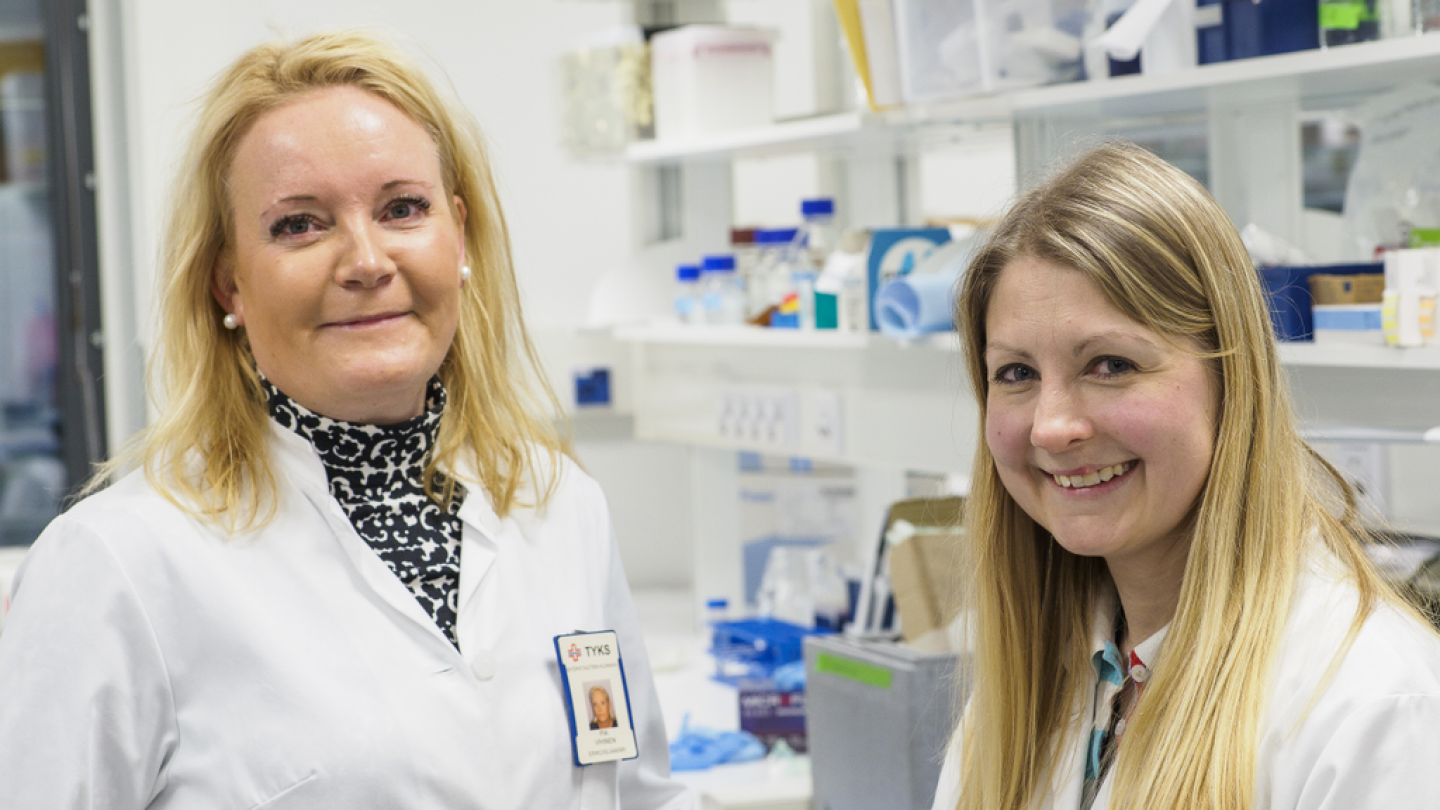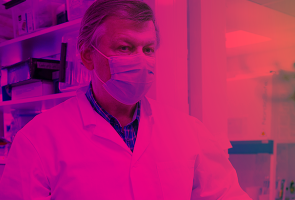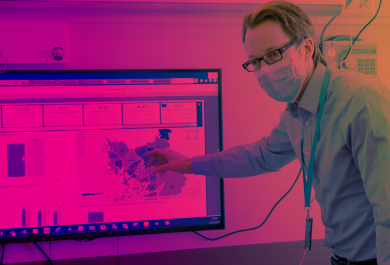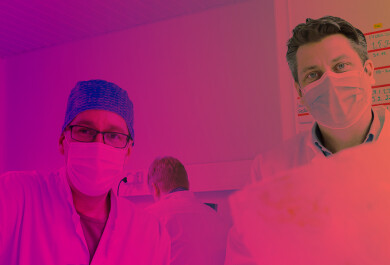Top-level skin cancer research acknowledging the individuality of cancer is conducted in Turku. In the studies, the characteristics of cancer are examined at the level of tracers and molecules. This opens up the opportunity to tailor the most suitable treatment for each patient. The studies are rewarding for both the researchers and the research subjects. At best, patients with advanced skin cancer benefit from the new medicinal products used in trials long before these products are in commercial use.
In Turku, cancer research is conducted as close collaboration of university and hospital researchers. Turku University Hospital (Tyks) and the University of Turku Faculty of Medicine thus work as a team and as part of a larger system, the Western Finland Cancer Centre (FICAN West), which is led by Docent of the University of Turku Pia Vihinen, Specialist in Oncology and Radiotherapy. Vihinen is a member of the skin cancer research group at Tyks.
When Vihinen was still a specialising physician, an older colleague warned her not to specialise in melanoma, which was a grim disease. “Why not study something that involves a possibility to achieve better results?” It is true that for decades, it was only possible to slow down the symptoms of melanoma with cytostatic treatments. However, a turn for the better took place 20 years ago: the BRAF gene mutation was discovered and the work to develop cancer drugs against it began.
– In the past 6–7 years, a considerable number of new highly specific drugs have been discovered, both BRAF and MEK inhibitors, which affect the internal signalling pathways of cancer cells. These are sophisticated treatments that prevent the growth of melanoma cells. The prognosis of advanced melanoma is now entirely different and there are new effective treatments for the disease. This is the greatest thing I have seen as a cancer specialist and the reason why I am so excited about it, Vihinen says.
– I have witnessed people recovering as a result of our treatments. When I was a specialising physician, it was extremely rare for anyone to survive advanced melanoma. Now we see that the progression of the disease can be halted. Even if metastases remain, they may remain passive and stop advancing.
Patients Participating in Research Benefit
FICAN West examines factors predicting melanoma and drug therapies for advanced cancer. As such, the prognosis of melanoma as a skin cancer is good. However, the patients Vihinen treats are those 15% who develop melanoma that has spread locally or more extensively.
Vihinen’s research patients receive new combination therapies in which both trial-stage immunological drugs and previously developed ones are used. The results of these double immunotherapies are promising.
– In clinical trials, it has been possible to get these drugs to patients years before it would have been possible in commercial use.
However, the main goal is still ahead. Vihinen finds it extremely important to be able to contribute to solving the most critical problem faced by melanoma patients – metastases that develop in the brain.
Basic Research for the Benefit of the Patient
In the Tyks skin cancer research group, the work of Clinical Lecturer, Researcher Pilvi Riihilä is in turn divided between research and teaching future physicians at the University of Turku. As a Specialist in Dermatology and Allergology, Riihilä also conducts clinical patient work. Riihilä’s research topic is cutaneous squamous cell carcinoma, which is almost as common as melanoma. While melanoma results from sunburns, squamous cell carcinoma is related to overall exposure to sunlight. Our skin remembers every moment we spend in sunlight.
The most severe cutaneous squamous cell carcinomas, a proportion of 2-3 per cent, also metastasise. Riihilä’s study looks for factors that could predict which cancers belong to this aggressive group and which do not. Her study is promoted by a three-year grant from the Cancer Society of South-West Finland.
– Our research is translational research in which we use the means of basic research to identify biomarkers that predict aggressive growth of cancer. However, the research question is patient-oriented: how can the patient be helped by means of basic research, Riihilä specifies.
Several interesting biomarkers, such as complement factors related to immunity, have already been discovered in the study. At the cell and tissue level, it has been detected that these specific markers occur especially in cutaneous squamous cell carcinoma.
– These markers have a stronger expression in tissue samples containing cancer cells.
According to Riihilä, the system as a whole is extremely complicated. Cancer cells also communicate to their environment and secrete to their microenvironment biomarkers that contribute to the growth of the cancer. These markers may also play a certain role in the body's normal immunodefence.
Aiming at an Individual Prognosis
The study of the complement factors identified in the study continues by examining patients’ clinical tissue samples. This is done in collaboration with Auria Biobank.
The biobank has tissue samples of metastatic squamous cell carcinoma from 82 patients. In addition, there are 218 samples of non-metastatic cancers.
– Our aim is to find out whether factors predicting the aggressiveness of the cancer could be identified in these tissue samples. If cutaneous squamous cell carcinoma metastasises, the prognosis is poor. Only 37 per cent of the patients are still alive five years later, says Riihilä.
The intention is to combine the identified factors in a biomarker panel with the aim of making it possible to check the samples of patients with squamous cell carcinoma against the biomarker panel and determine the prognosis of individual patients’ cancer.
Studies on antibodies to the identified biomarkers are already under way globally, but for other purposes. In other words, the aim is both to find new drugs and take advantage of previously discovered drugs to prevent the spread of cutaneous squamous cell carcinoma in the future.
Important Alliance between Clinical and Basic Research
FICAN West has the important role of gathering all cancer research conducted in the region to the same network. When the network operates closely, cancer research and the patients benefit. The core question is how to enable clinical and basic cancer research to produce results together.
– We have top-level researchers who conduct basic research at the molecular level and publish results in Nature and other most distinguished scientific journals. The operation of FICAN West is aimed at helping to make researchers’ inventions available to the patients better and quicker, Pia Vihinen says.
– Interesting early-phase trials are under way in Turku and we would also like put our own inventions into use. This is a big dream.
If the inventions are now developed into drug candidates, they must circulate via the large research centres in Europe and the USA.
– We are such a small country. Finding enough patients to participate in the study requires networking between the five cancer research centres in Finland and also building co-operation with the other Nordic countries. These are the options we have as one of the European centres, Vihinen says.
Finland has the advantage of biobanks, detailed patient registers and monitoring. They mean that there is a permanent element to the data. Patients also have a positive attitude to research and treatment.
– In Finland, patients trust healthcare and doctors. We must maintain this trust, Pilvi Riihilä emphasises.
The Tyks skin cancer research group also includes Professor of Dermatology, Chief Physician Veli-Matti Kähäri, Docent Plastic Surgeon Ilkka Koskivuo and Specialist in Oncology and Radiotherapy Kalle Mattila.
Turku University Hospital and the Faculty of Medicine at the University of Turku form a cluster of excellence in which research and the high-quality treatment based on it form a seamless entity. More than one thousand scientific studies are under way in these organisations, engaging approximately 1,500 experts. Approximately 200,000 patients receive treatment at Tyks every year. Visits to outpatient care total over 1.2 million and days at inpatient care almost 300,000. The University of Turku and the Hospital District of Southwest Finland are part of the Health Campus Turku network, which also includes Åbo Akademi University, Turku University of Applied Sciences, Novia University of Applied Sciences and Turku Science Park Oy.
Text: Sini Silvàn
Photos: Mikael Soininen
Translation: Lingsoft

